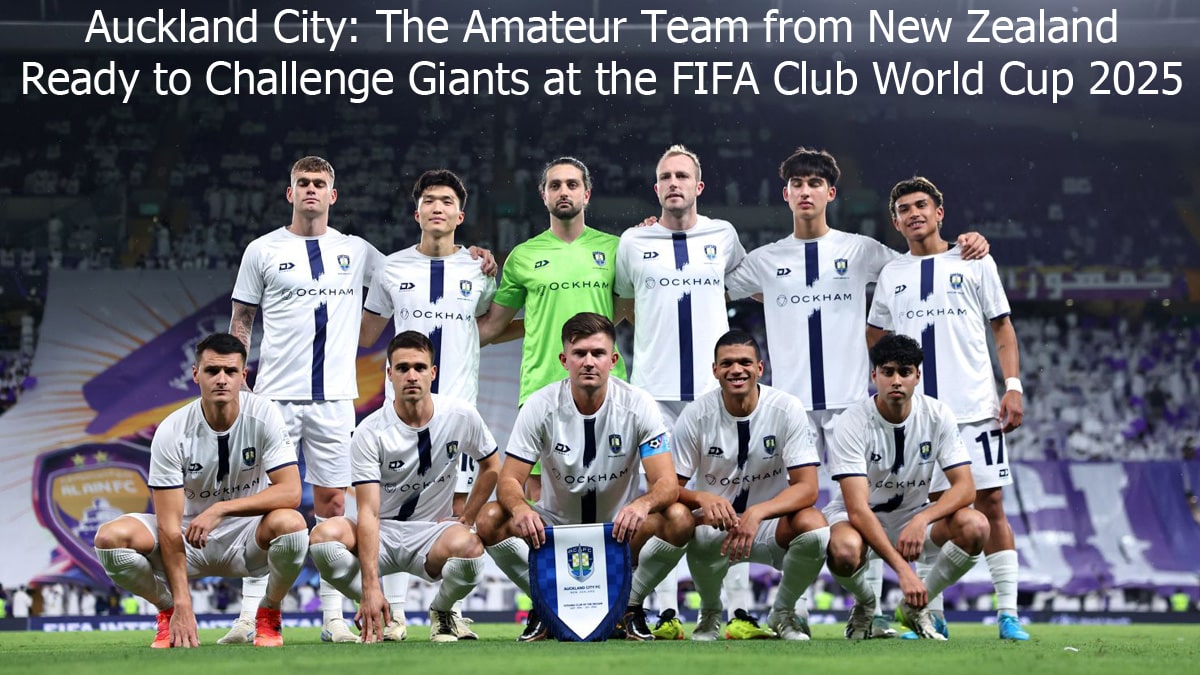As football’s biggest names prepare to battle it out at the FIFA Club World Cup 2025, one story stands apart—not of a global superpower. But of resilience, passion, and quiet determination. Auckland City FC, an amateur football team from New Zealand, is preparing to take the field against some of the most powerful clubs in the world. In doing so, they carry the hopes of a region and a message far greater than sport alone.
Based in a country without a professional football league of its own, Auckland City is a team made up of part-time players. Most have full-time jobs outside football. Team captain Mario Ilich, for example, begins his day before sunrise delivering beverages as a Coca-Cola sales representative. After a full day’s work, he drives across the city to attend training sessions that run into the night. Four times a week, every week.
When Ilich said, “It’s our passion, but it’s not easy,” It’s not something we do to attract attention. We really like the game, so we’re going to play it. Today, we have the chance to represent Oceania abroad.
Conor Tracey, the goalie, had a similar tale. He works in a warehouse that deals with animal pharmaceuticals. He had to take unpaid leave throughout the World Cup. “I didn’t even think twice. This is an opportunity that only comes once in a lifetime,” he said. “Who would have imagined being on the same field as Darwin Núñez or Harry Kane?”
Auckland City qualified for the Club World Cup by winning the OFC Champions League again. It was their 13th title, a testament to their consistent dominance in Oceania. However, regional success is one thing; competing against global titans like Bayern Munich, Benfica, and Boca Juniors is another matter entirely. For most of these players, just sharing a group stage with such legendary clubs is surreal.
But this isn’t just a football story. It’s a human story. It’s about dreams nurtured quietly in the corners of a country better known for rugby and breathtaking landscapes. It’s about everyday people who come home from work, lace up their boots, and train in the rain. It’s about proving that football doesn’t belong only to the elite.
The club’s entire operational budget for the year had to be doubled to fund their participation in the tournament. With no major sponsors and limited infrastructure, Auckland City relied on local support, community fundraising, and sheer determination to make the trip happen. “This isn’t just our dream—it’s the dream of everyone who’s ever played football on a dusty local pitch with no one watching,” said coach Albert Riera.
And while the scoreboard might not favor them, Auckland City’s goals extend beyond the field. The financial support provided by FIFA will help fund sports development programs in New Zealand, including the construction of football fields in underserved areas. “Even if we lose every match, we win something bigger,” said Ilich. “We win the chance to inspire kids who’ve never had access to proper facilities.”
The emotional toll and physical demands of balancing careers and professional-level training are real. But so is the pride. Auckland City enters every match knowing they are representing not just a club, but a way of life—a philosophy that football is for everyone.
“Most people around the world don’t know us,” Tracey admitted. “But we’re stepping onto that field as equals. The game starts 0-0, and for those 90 minutes, anything is possible.”
The team’s journey to the 2025 Club World Cup has already captured hearts across Oceania. Social media buzzes with messages of support. In Auckland, schools and local clubs have started streaming training sessions, and families gather to watch the matches no matter the hour.
This isn’t a fairy tale about slaying giants—it’s a real-world testimony to persistence and dignity. When Auckland City walks out to face European champions under the bright lights of Cincinnati, they will do so with full awareness of the odds. But also with the full weight of something far greater than silverware: a story of spirit, unity, and hope.
As Tracey puts it, “We represent the 99% of footballers who play not for money, but for love. And that’s a power in itself.”

